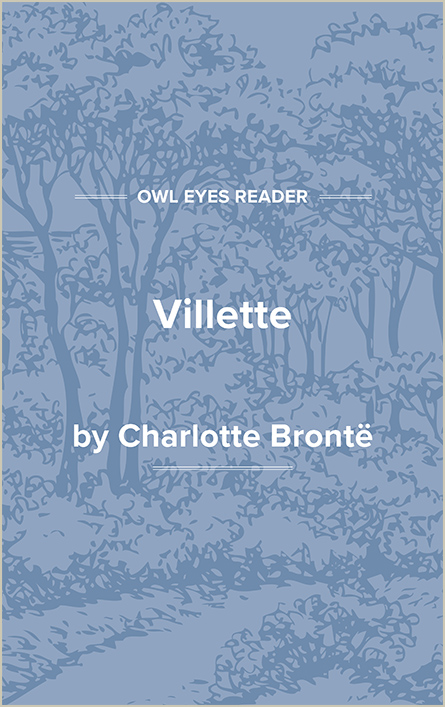Study Guide
Summary
In Villette, Brontë once again tells the story from the point of view of an autobiographical narrator. Unlike Jane Eyre, however, the narrator of Villette, Lucy Snowe, is neither entirely reliable nor likable. Her unpleasant nature and habit of withholding information from the reader is responsible for the lack of critical consensus about Villette. While some literary scholars see the novel as a well-constructed discourse on the repressive nature of Victorian society, others view it as a disordered representation of a neurotic character. The mixed response to Villette was evident in the first reviews it received, and it never achieved the popularity of Jane Eyre.
There are marked similarities between Villette and Jane Eyre: Both narrators are orphans, both teach to earn their livings, and both consider themselves unattractive. In both novels, Brontë drew on her own experience to create a realistic setting; indeed, Villette is placed in the same Belgian territory as Brontë’s first novel, The Professor. Yet Villette differs from the previous novels in a number of important ways. Formally, the shifting focus, plot coincidences, and length of time that passes between Lucy’s narration and the events that she recounts all challenge the conventions of the realistic novel. This departure is particularly evident in the ending, when Lucy refuses to explain what has happened to her fiancé, Paul Emanuel, and instead tells the reader to imagine that she has been reunited with him and has embarked on a blissful life. The reality, which Lucy condescendingly assumes the reader is too sentimental to accept, is that Paul has been drowned in a violent storm at sea.
Lucy’s open ending of her story points to another important difference between Villette and earlier Brontë novels: The delineation of the narrator’s character is such that she cannot be trusted. Like Jane Eyre, Lucy feels that her inner self is not expressed or evident in her passive, public existence. Unlike Jane, however, she does not rebel against this disjunction; instead, she manipulates it in order to satisfy her voyeuristic impulses. Powerless, Lucy gains perverse pleasure in thinking that she is more observant about others than they are about her. She works at disguising her true character, an effort that fails only with Paul, the man whom she eventually comes to love.
Lucy Snowe, named carefully by Brontë to suggest her cold personality and buried life, emphasizes those experiences that support her assertion that fate has deprived her of any kind of happiness. She hastily summarizes her childhood, spent happily with a godmother, and begins a detailed account of her life at the time of her first employment as companion to an old woman who has mourned a dead lover for thirty years. From this melancholy position, Lucy takes a job as teacher to the youngest children in a Belgian girls’ school. Strongly biased against Catholics, she finds herself alone in a Catholic country with an imperfect grasp of the language...
(The entire page is 753 words.)
Owl Eyes subscribers get unlimited access to our expert annotations, analyses, and study guides on your favorite texts. Master the classics for less than $5/month!

